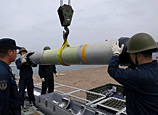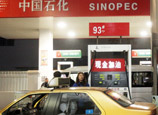
The yuan's rank in the international pecking order has risen from 20th at the start of 2012, overtaking the currencies of Turkey, Mexico, New Zealand, Hungary, South Africa, Denmark and Russia in the last year alone.
The yuan is being increasingly used by global investors and businesses as a currency for storing wealth and for raising capital. In March, 47 billion yuan (US$7.6 billion) of so-called Dim Sum bonds and certificates of deposit were issued, the highest level since June 2012. This was followed by another 39 billion yuan of Dim Sum issuance in April.
By the end of April, outstanding Dim Sum bonds and deposits totaled around 460 billion yuan, almost 70 percent of Hong Kong's yuan deposit base.
Strong demand
Owing to strong demand for Dim Sum bonds, some foreign issuers, particularly banks, have reduced their all-in borrowing costs in US dollar terms by issuing in offshore yuan and swapping the proceeds into the dollar.
We expect this trend to continue because the cost savings are real and this practice helps issuers to broaden their funding channels and investors to diversify their risk exposure.
Our view is that yuan internationalization is an irreversible process that will accelerate in 2013.
Although Hong Kong still accounts for about four-fifths of our index universe, governments across Asia, Europe, the Americas and Africa want to encourage the development of offshore yuan centers in their financial capitals. They see it as critical to future trade with China, which is expected to emerge as the world's largest economy by the end of this decade.
Within Asia, Singapore is in a strong position to capture the structural rise in China-Asean flows - which we see as the catalyst for the next wave of yuan conversion - much like London has benefited as European multinationals have embraced the yuan amid rising euro-area uncertainty. In May, Standard Chartered issued the first ever Dim Sum bond listed, cleared and settled in Singapore. The Monetary Authority of Singapore doubled its swap line to 300 billion yuan in March. We believe this liquidity backstop will complement Singapore's new yuan clearing capabilities, offering further reassurance to existing and potential yuan users in the region.
London is set to sign one of the largest yuan-swap arrangements with China soon, the size of which could rival those with Hong Kong and South Korea. Australia is also supporting the yuan by committing itself to invest 5 percent of its reserves in China's sovereign bonds.
At the BRICS summit in Durban in March, the South African Reserve Bank agreed with the People's Bank of China to invest up to 9.3 billion yuan, or about 3 percent of South Africa's forex reserves, in China's interbank bond market. Meanwhile, Hong Kong's recent removal of regulatory impediments will boost its offshore yuan liquidity. We expect yuan deposits in Hong Kong to increase to around 800 billion yuan by the end of the year.
Taiwan is catching up fast. The use of the yuan for cross-border trade settlement by local businesses is soaring.
In February, Taipei became the fourth-largest offshore center for yuan settlement, behind Hong Kong, London and Singapore, up from seventh place in August 2012. Yuan payments accounted for 12 percent of Taiwan's bilateral trade with China's mainland in March. This compares with 6 percent last August, when Taiwan first allowed such trade to be settled in yuan via offshore banking units.
Upside potential
We see further upside potential as Taiwan's regulators take steps to speed up the adoption of the yuan, including its use in wealth management products. In early April, the Financial Supervisory Commission announced the liberalization of foreign investment rules regulating Taiwan's life insurance companies. The change will allow more life insurers to increase their exposure to yuan-denominated products in order to increase their returns.
Regulators from both sides are negotiating a quota of up to 100 billion yuan for Taiwan under China's Reminbi Qualified Foreign Institutional Investors program. We believe Taiwan's yuan deposits - including those in both domestic and offshore banking units - are on track to reach 100 billion yuan to 150 billion yuan by the end of 2013.
This would result in Taiwan overtaking Singapore as the second-largest market in terms of yuan deposits, after Hong Kong.
Taiwan's financial regulators also granted permission for the first yuan-denominated mutual fund, soon after approving Taiwan's first yuan-denominated bond, or Formosa bond, issue in February.
The next leg of the yuan's international march will possibly be led by international investment flows.
Beijing recently expanded its two qualified foreign investors' programs with Hong Kong, reiterating its commitment to encourage two-way capital flows. This complements the recent news that 13 multinational corporations are now allowed to move funds worth up to 30 percent of their invested capital in China across the border.
With these measures, we expect foreign ownership of China's onshore bonds to rise between 1.5 percent and 3 percent by year's end.
For Beijing, this has never been a one-sided business.
Internationalizing a currency involves more than pushing money offshore. Rather, the intent is to create a deeper pool of offshore yuan liquidity. The expansion of the reminbi program for qualified foreign investors creates more yuan-denominated investable assets offshore.
It exemplifies China's experimentation model for capital account liberalization: opening new avenues and, over time, granting larger quotas, expanding eligibility thresholds and widening the accessibility of various onshore markets. Are companies and investors ready to capitalize on one of the biggest shifts in the financial markets this century?
Kelvin Lau is a senior economist with Standard Chartered. The opinions are his own.

















 Modern movie dream in retro Mingguo street
Modern movie dream in retro Mingguo street


![]()
